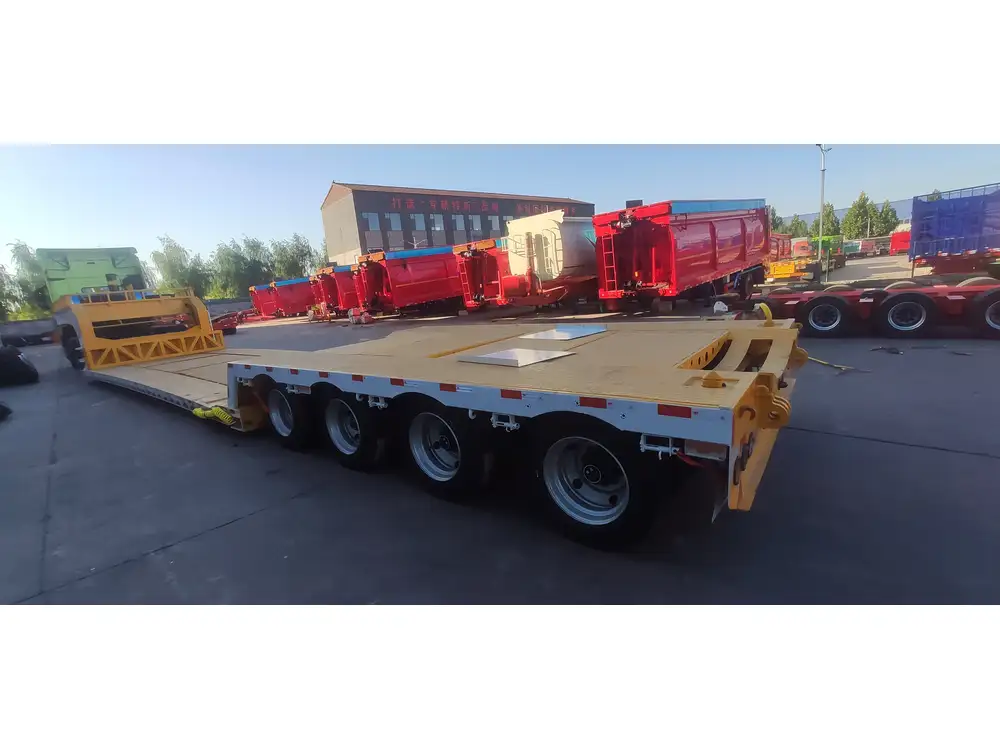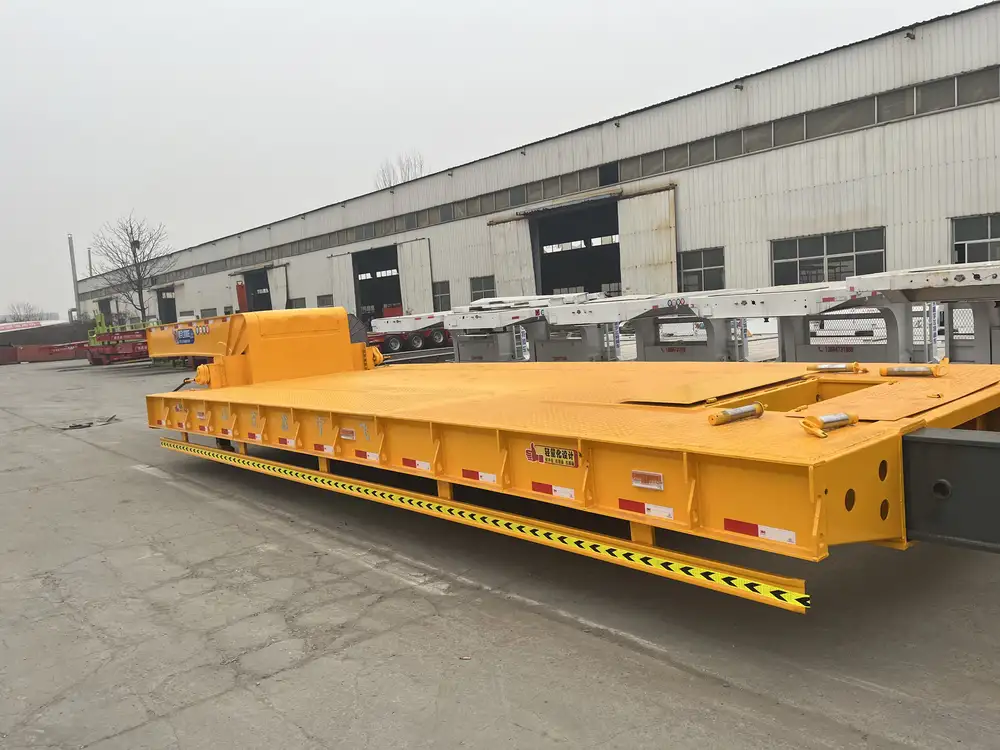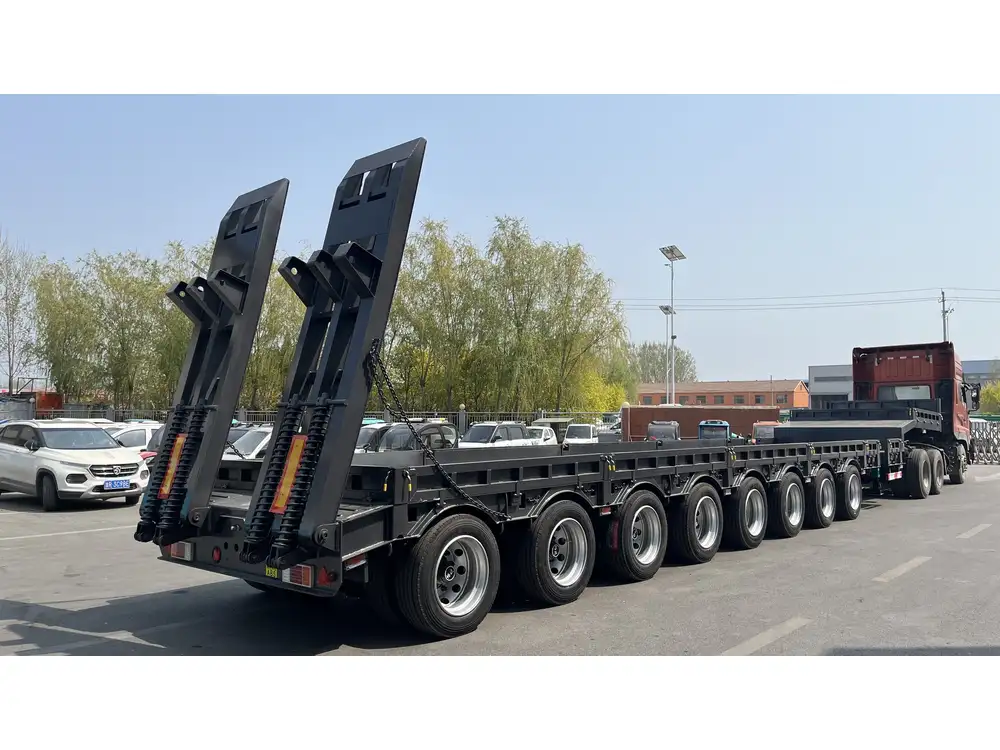When it comes to purchasing flatbed trailers, one critical aspect that buyers must consider is the Federal Excise Tax (FET) applied to these vehicles. This article serves as a comprehensive guide on how FET tax impacts flatbed trailer pricing, the nuances of tax rates, and how to navigate this financial aspect effectively. Whether you are a fleet manager, a logistics company owner, or an independent contractor, understanding the intricacies of FET tax can save you considerable amounts of money and help streamline your financial planning.
What is FET Tax?
The Federal Excise Tax (FET) is a tax levied by the U.S. government on specific goods, including heavy trucks, trailers, and other commercial transportation vehicles. The purpose of the FET is to generate revenue for the federal highway system and to impose a tax on items that are primarily used for business purposes.
Overview of FET Rates
The FET on flatbed trailers is calculated based on their sales price. As of the latest updates, the tax rate for most types of trailers, including flatbed trailers, is 12% of the sales price. However, it’s important to note that changes in legislation can affect this rate. Below is a simplified table to illustrate the current FET rates applied to different types of trailers:
| Trailer Type | FET Rate |
|---|---|
| Flatbed Trailers | 12% |
| Specialized Trailers | 12% |
| Dump Trailers | 12% |
| Other Commercial Trailers | 12% |

Calculating the FET Tax on a Flatbed Trailer
To determine the total FET tax on a flatbed trailer, the formula is straightforward:
FET Tax = Sales Price of Trailer × FET Rate
Example Calculation
Let’s consider a scenario: if a flatbed trailer has a sale price of $30,000, the FET tax calculation would be:
- Sales Price: $30,000
- FET Rate: 12%
FET Tax = $30,000 × 0.12 = $3,600
Thus, the buyer would need to pay an additional $3,600 in FET tax on top of the purchase price.
Exemptions and Reductions
Certain circumstances might exempt a buyer from paying the FET tax, or reduce the amount owed. Some common scenarios include:
- Sales to Tax-Exempt Organizations: Vehicles sold to certain non-profit organizations may not incur FET.
- Selling Used Trailers: If the trailer being sold is not considered a first sale, it may also be exempt from FET.
- Certain Types of Transfers: Transfers within a business or certain family-restricted sales may qualify for exemption.

Important to Note
Always consult with a tax professional or refer to IRS guidelines to verify if your specific case qualifies for any exemptions.
FET Tax Compliance: Responsibilities of the Seller and Buyer
It’s crucial for both sellers and buyers to understand their obligations regarding FET tax compliance. Below, we break down the responsibilities:
Responsibilities of the Seller
- Collecting the Tax: Sellers must collect the appropriate FET tax from the buyer.
- Filing Requirements: Sellers are required to report the collected FET tax to the IRS, typically via Form 720.
- Record Keeping: Maintaining adequate records of tax collected, trailer sales, and any associated documentation is essential.

Responsibilities of the Buyer
- Understand the Costs: Buyers must include not only the purchase price but also the FET tax when assessing the total cost of acquiring a trailer.
- Retaining Documentation: Buyers should keep invoices and tax documents as proof of tax paid, especially when filing for potential deductions or exemptions.
FET Tax and Financial Planning
When planning for the acquisition of flatbed trailers, understanding how the FET tax factors into your financial calculations is vital. Here are some considerations:
Cash Flow Impact
The addition of FET tax affects cash flow, especially when purchasing multiple trailers at once. Planning your budget to accommodate the extra cost is essential for maintaining operational stability.

Lease versus Purchase Considerations
Many businesses face the dilemma of whether to lease or purchase trailers. While the FET tax impacts outright purchases directly, it can often be ignored in leasing arrangements.
| Aspect | Purchase | Lease |
|---|---|---|
| Initial Costs | Higher (includes FET) | Lower (typically no FET) |
| Tax Implications | FET applies | FET does not apply |
| Long-Term Investment | Ownership Advantage | No ownership |
| Cash Flow | Affects cash flow | Regulates cash flow |
FET Tax in State Context
While FET is a federal tax, some states impose additional taxes on trailers, which could include sales tax or other local levies. It’s essential to check with your state’s Department of Revenue for specific tax obligations related to flatbed trailers.
State Comparison Table
To highlight the potential differences, consider the following state comparisons on trailer taxes:
| State | Sales Tax (%) | Additional Fees |
|---|---|---|
| California | 7.25% | Vehicle License Fee |
| Texas | 6.25% | Annual Franchise Fee |
| Florida | 6% | Title Transfer Fee |
| New York | 4% | Registration Fee |

Potential Future Changes in FET Tax Rates
Legislation surrounding FET taxes can change, often impacted by broader political and economic factors. Keeping abreast of potential changes can inform future purchasing decisions. Here are a few insights into possible future developments:
- Infrastructure Bills: Funding requirements for infrastructure projects can lead to adjustments in FET rates.
- Environmental Regulations: Increasing attention to sustainability may spur discussions on tax incentives for eco-friendly alternatives.
Conclusion
Navigating the complexities of Federal Excise Tax on flatbed trailers is crucial for any buyer or seller looking to make informed decisions. By thoroughly understanding how FET tax impacts costs and compliance obligations, all parties can ensure smoother transactions and better financial clarity.
In summary, keep in mind the following key points:
- Always calculate FET taxes based on the sales price.
- Stay informed about potential exemptions and filing responsibilities.
- Consider the cash flow impact of FET tax in broader financial planning.
- Monitor local and state sales taxes, as they can significantly affect total costs.
Being equipped with this knowledge will not only help you manage your expenses better but will also streamline your operations in the competitive market of trailer procurement.



